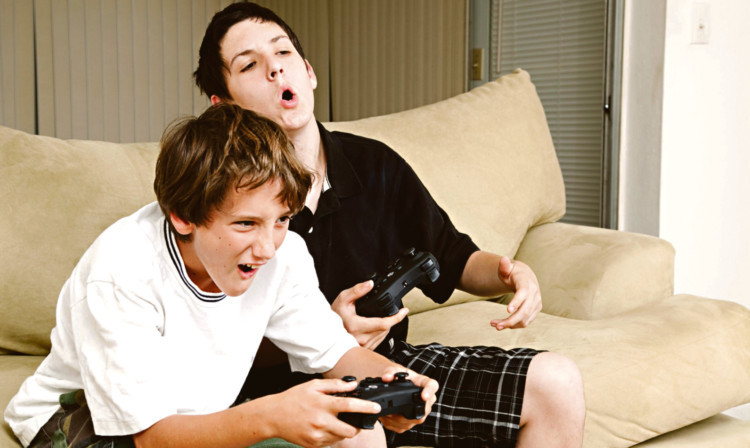
Desperate families sending kids to rehab.
Scots parents are resorting to sending their children to psychiatric treatment centres because they’re addicted to playing computer games. Thousands of people are contacting counselling services every year to seek help for kids as young as 11 who spend up to 20 hours a day in virtual worlds.
Many of them are being referred to Priory-style residential clinics for treatment, costing parents as much as £72,000 each. One expert said the problem is a time-bomb that could result in huge numbers of addicts committing suicide.
Some families have even sent their children to boot camps in America as they are too young to be treated by clinics in the UK. The US-based centres have no computer facilities but instead encourage residents to rediscover an interest in the outdoors and physical activities.
Oliver Clark, who runs UK addiction counselling service ADT Healthcare, said he gets around 10 calls every day from desperate families.
He said: “A lot of callers have an addict in their family unit. Many addicts are children but there aren’t a lot of clinics that are licensed for people under 16.
“There’s no treatment on the NHS for gaming addicts so we have to send them to private clinics that can charge up to £4,500 a week. Given treatment can last as long as 16 weeks, that’s a lot of money.
“There are various programmes in the US we can send addicts on, too. Unfortunately, it means that only rich families can afford to get their children help. It’s an epidemic.”
Oliver said children’s bodies are flooded with chemicals such as dopamine and adrenaline when they play video games. This rush of chemicals becomes addictive, meaning they have to keep playing to achieve the same high and go through withdrawal when they stop.
He said: “Some of them play games for 20 hours a day. Their whole life becomes a fantasy. They become very defensive when parents try to take games away from them they go through withdrawal.”
Stephen Noel-Hill is a former gambling addict who now works as a counsellor helping others. He deals with close to 1,000 calls from Scots every year. The majority are parents seeking help for their kids.
He said: “I’ve come across real horror stories such as people who would defecate in the corner of their room because they refused to stop playing to go to the toilet. One guy I worked with had ulcers like bed sores all down his back because he’d been sat playing games for so long.
“These games are everywhere. We saw a spike in cases when games started becoming available as apps on mobile phones.”
“There are a lot of suicides to come from all of this because these people will wake up one day and realise they have no qualifications and no social skills to be able to form relationships. It’s a time-bomb.
“Addicts become suicidal when you take the games away from them. Kids have attacked their families over games being removed. In some cases they’ve threatened their parents with knives.”

Enjoy the convenience of having The Sunday Post delivered as a digital ePaper straight to your smartphone, tablet or computer.
Subscribe for only £5.49 a month and enjoy all the benefits of the printed paper as a digital replica.
Subscribe